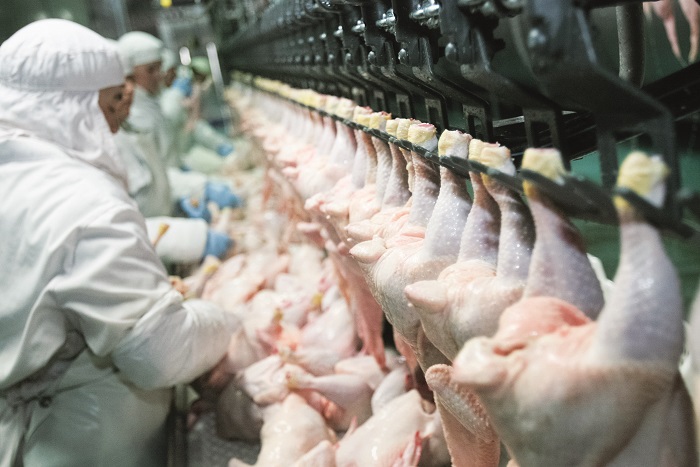Avara Foods has expanded production at its Telford chicken processing site with an additional 150 jobs created in the past few months and seven new apprentices taken on.
Since reopening the Telford plant in 2015, following a £36m expansion and refit, investment in technology, automation and infrastructure has continued. During August, Telford hit a new high of 1.5 million chickens processed per week.
Graham Clempner, site manager, said: “This year has been fantastic for our Telford site. The factory has quickly adjusted, exceeded targets and managed the additional demand exceptionally well. The amount of extra work coming in to Telford will be great for ongoing recruitment and development.”
Alongside investment in technology, investment in people has been at the heart of Avara’s recent growth and success. Between March and August 2018, Avara took on an additional 150 people to help meet rising demand for chicken and increased pay by 4.4% for over 850 of the Telford team.
With the available labour pool reducing further, due in part to Telford’s low overall unemployment, competition for new recruits is tougher than ever. In September seven new apprentices joined the team, including the first degree apprentices, studying food science and food engineering with Harper Adams. Successfully completing the five year programme will give each apprentice a permanent job, a degree and valuable hands-on experience, all without the mounting debts that most university students face.
Andrew Brodie, People and Communications Director said: “Now, more than ever, we must focus on sourcing and developing our own talent. 2018 is the pilot year for our degree apprenticeships, which we hope will open up higher education for talented students aiming to earn while they learn.”
Looking further ahead the spectre of Brexit, and the uncertainty surrounding it, isn’t dampening plans. “There’s no doubt that the Brexit vote has thrown everything up in the air,” said Brodie. “All we can do is focus on what we do best – great food, produced efficiently and to high standards. Automation will be essential to our future success and as part of our people strategy. By automating repetitive tasks we can become more efficient and also create new, more skilled roles that are more meaningful and better rewarded.”


